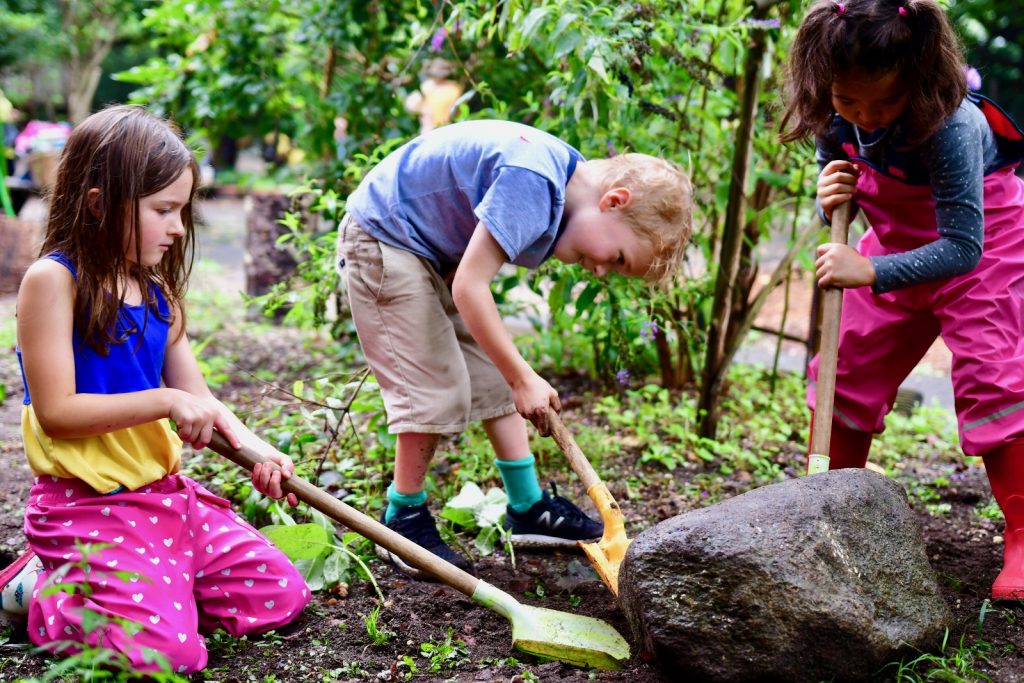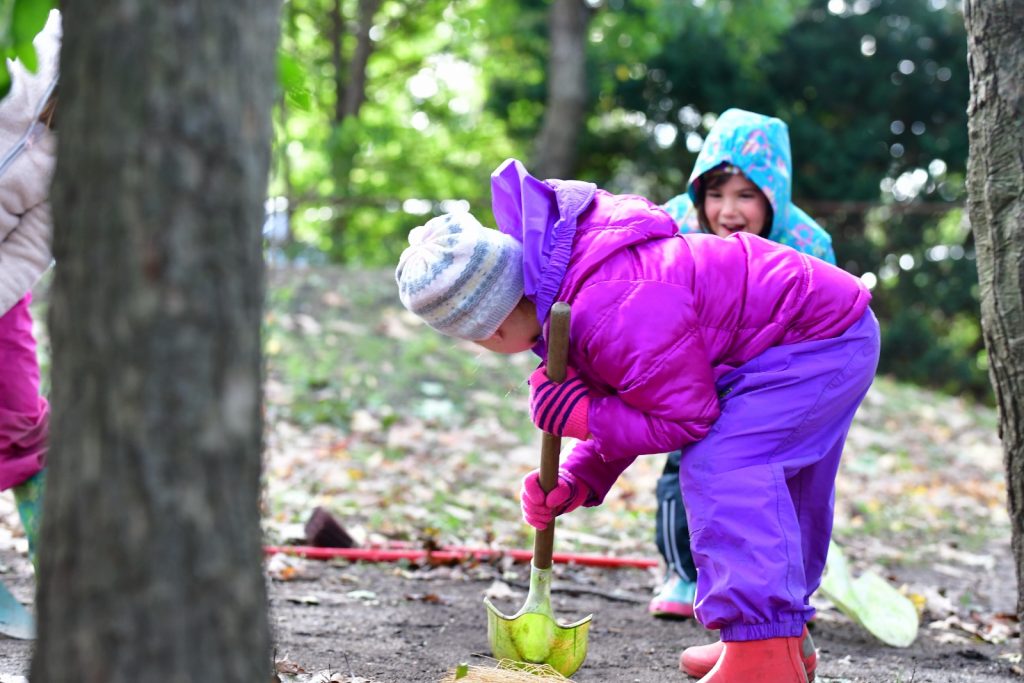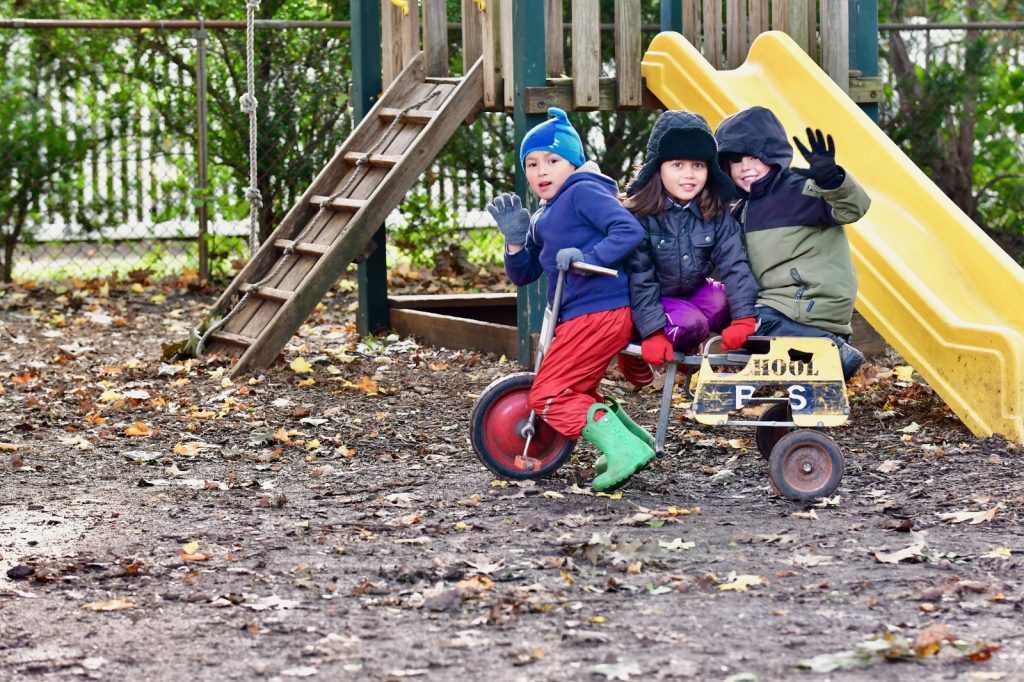 While on the surface the connection may not be apparent, physical activity and development play important roles in reading skill acquisition in children. The growth and coordination of both fine and gross motor movements are crucial to developing the ability to communicate with others. This growth milestone is a precursor to oral language and pre-literacy development upon which reading skills are built.
While on the surface the connection may not be apparent, physical activity and development play important roles in reading skill acquisition in children. The growth and coordination of both fine and gross motor movements are crucial to developing the ability to communicate with others. This growth milestone is a precursor to oral language and pre-literacy development upon which reading skills are built.
Active play strengthens bones, muscles, and the brain and establishes vital connections between them. As children grow, the need for strong motor skills becomes even more evident. For this reason, it is important to ensure that young children participate in regular, vigorous, physical activity to develop and grow properly. Waldorf Early Childhood teachers create educational settings that foster broad, diverse sensory experiences and encourage movement that is purposeful, finely focused, and vigorous in order to help develop the physical body in a way that sets the stage for reading skills to bloom. Some of these activities include:
- Circle Time: marching, clapping, stomping, and skipping all help to fine-tune a child’s awareness of rhythm and cadence, a capacity that is necessary for reading fluency as well as supporting the young child’s developing memory.
- Eurythmy: a form of movement that enables a child to give meaning to motion, correlates with reading when children use their bodies to tell a story or express a mood or emotion through movement.
- Outdoor Games: physical activities that include multiple steps teach directionality, sequencing, planning, predicting, and even problem solving–traits mimicked while reading.
- Imaginative Play/Play voice: Through their inner dialog as they create play scenarios children develop what will become their silent reading voice.
- Painting, drawing, finger knitting, and beeswax molding: all activities and games involving fine motor skills set the stage for writing. These artistic activities also enhance planning, predicting, and problem-solving skills.
 According to the National Institute of Health, “Physical development goes hand-in-hand with cognitive development in young children, and progress in one domain often relies on progress in the other.” It is clear that children will have the best possibility for success and satisfaction in grade school if they are fully ready to take on academic work. Children in the Waldorf Early Education Program consistently participate in experiential physical activities that promote pre-literacy skills which include the ability to sit at a desk, follow the writing on the chalkboard from left to right, and maneuver the shifting terrain of curves and lines in the alphabet.
According to the National Institute of Health, “Physical development goes hand-in-hand with cognitive development in young children, and progress in one domain often relies on progress in the other.” It is clear that children will have the best possibility for success and satisfaction in grade school if they are fully ready to take on academic work. Children in the Waldorf Early Education Program consistently participate in experiential physical activities that promote pre-literacy skills which include the ability to sit at a desk, follow the writing on the chalkboard from left to right, and maneuver the shifting terrain of curves and lines in the alphabet.
 Early Childhood Educator, Lisa Miccio says, “Our outdoor play spaces, which include several play areas, a nature trail, and the Winkler Garden, are abundant with opportunities that stimulate the children’s sense of wonder and imagination; as well, as their maturing senses of touch, balance, spatial awareness, and well-being. When children are in nature they are invited to climb and negotiate uneven terrain, and when doing so, they have to learn how to be adaptable – physically, socially, and emotionally. In addition, they learn how to regain their equilibrium when thrown off balance and problem solve on the ground – literally.”
Early Childhood Educator, Lisa Miccio says, “Our outdoor play spaces, which include several play areas, a nature trail, and the Winkler Garden, are abundant with opportunities that stimulate the children’s sense of wonder and imagination; as well, as their maturing senses of touch, balance, spatial awareness, and well-being. When children are in nature they are invited to climb and negotiate uneven terrain, and when doing so, they have to learn how to be adaptable – physically, socially, and emotionally. In addition, they learn how to regain their equilibrium when thrown off balance and problem solve on the ground – literally.”
In celebration of this important work, our School is planning to enhance the early childhood play areas with funds raised from our 2019 Gala scheduled for Friday, May 31, 2019. Stay tuned for updates about the project!
Learn more about our approach to early childhood education at https://www.waldorfearlyeducation.org/ or attend the annual Winkler Center Conference on Saturday, March 23rd where Lisa Miccio is offering a workshop titled, Supporting Healthy Self-regulation in Early Childhood.

